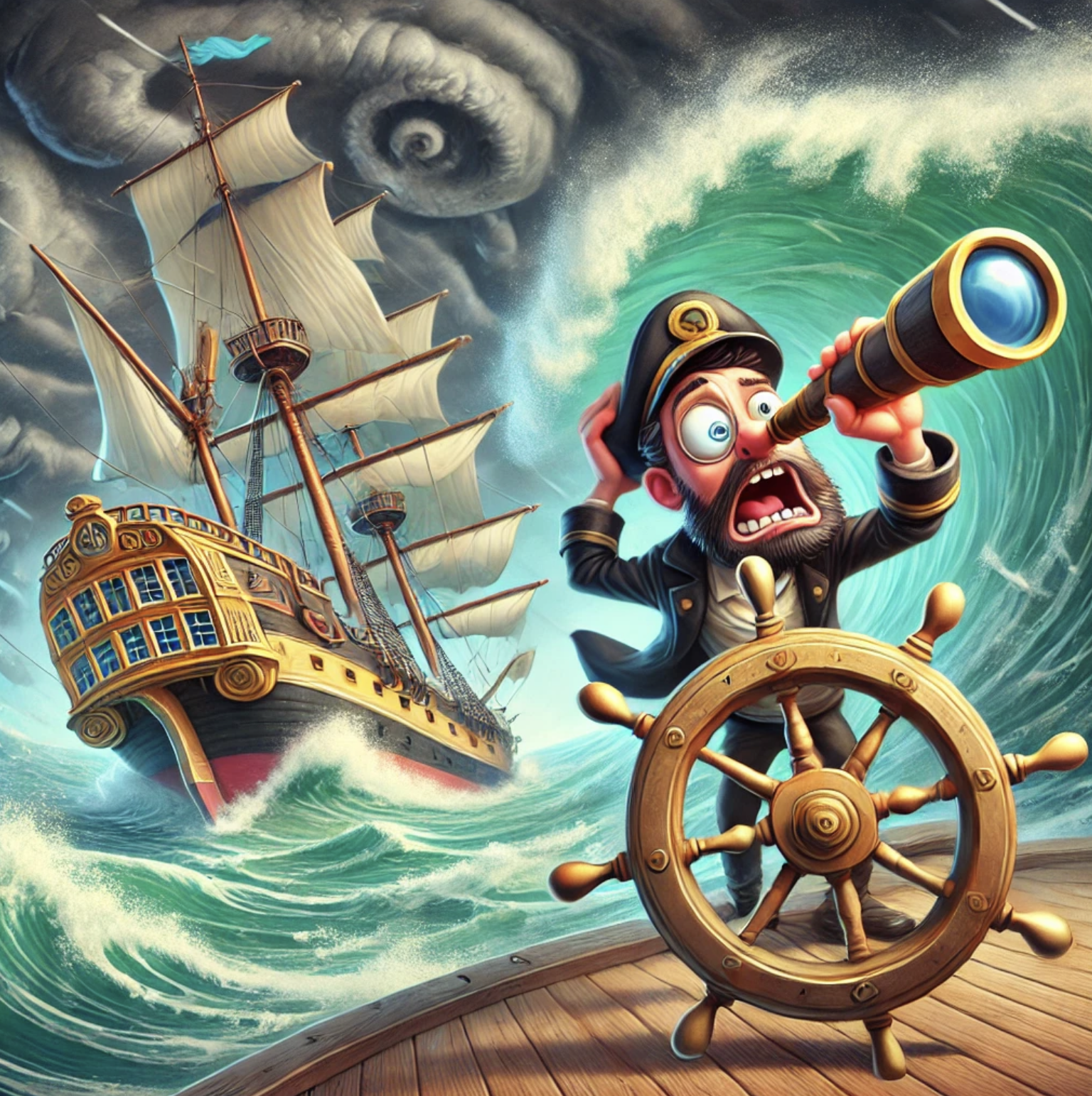The Vision V Mission debate
Personally, having spent many years in well-established businesses where vision and mission were, well, just “there”, I admit that I took these two critical concepts very much for granted. It was only when I joined a business where both were absent - or rather: one was ill-understood and the other (as a result?) argued over for significant periods of time - that I began to realise quite how important they both are. And that one without the other meant a ship lost at sea.
An organisation without vision or mission, is like a ship without telescope or compass…
I was therefore all the more intrigued when, in the run up to the UK General Elections, then leader of the Opposition, now Prime Minister Keir Starmer, seemed to have a preference for one over the other, choosing to focus on Mission rather than a big Vision. Why, and really: what is the difference between the two? Do we need one more than the other, how do they interact with each other?
Vision: The Dream
So let’s imagine we’re on a ship’s journey. Your Vision Statement is the telescope through which the captain can not just see for himself, but show others, the ultimate destination. It tells the world where you hope to get to in the future… even if you might never quite make it. This destination is inspiring, the pot of gold at the end of the rainbow, it’s somewhere others would like to follow you to; perhaps a better world, but definitely not “just” Series ‘A’ funding or an approaching storm of quarterly financial reports.
Vision statements are meant to inspire and motivate, to set a direction for the ambition of the company. For startups, a bold vision is often essential. It's the beacon that attracts investors, talent, and attention. "We envision a world where every human is connected with a personal robot companion"—pretty exciting, right?
However, ‘Vision’ can be a bit like cloud-watching… and if you spend too much time staring into the clouds, you might not see the obstacles and challenges right in front of you, such as the immediate hurdles of product development, marketing, customer service... Hence, the practical Starmer might feel more comfortable measuring hard progress towards a horizon rather than focusing on the distant horizon itself.
Mission: The Here and Now
So, back to our sailing adventure. If your vision is your ultimate destination, your mission is your compass, your map, your crew — the navigation tools to tell you what you need to do right now to get to where you want to be. It's practical, immediate, and if done right, immensely satisfying.
Companies thrive on strong missions. They serve as rallying cries and daily mantras for employees. Google’s vision, for example, is “to provide access to the world's information in one click.” Lofty for sure. Their mission meanwhile tells you how they’re actually going to get there: by "organis[ing] the world's information and mak[ing] it universally accessible and useful." That's a mission you can set your watch to. And indeed, we can all see how they are executing against it.
And Keir Starmer? Not a man to romanticise the future with grand, sweeping statements, it’s perhaps not surprising that he appears to prefer the mission: tangible, measurable, and achievable.
Mission vs. Vision: Which Wins the Corporate Race?
Now, is one more important than the other? That’s a bit like asking whether a wheel or an engine is more important in a ship. You generally need both to get anywhere meaningful.
For startups, swinging too heavily towards vision might mean staring up in the clouds endlessly but never knowing how to get the wind in your sails. Conversely, focusing solely on mission might keep you trudging along without ever asking if you’re on the right path.
Starmer's preference for mission over vision might stem from a simple pragmatism in politics: it’s wonderful to dream, but at the end of the day, someone has to do the dishes and make sure the lights stay on. Voters are generally more interested in solving the problems of the here and now, especially when things are tough. Nevertheless, without a clear vision, you’ll struggle to get people to follow you, to be inspired by you, to continue to vote for you, support your policies, and be willing to go the extra mile to achieve success. Starmer might still find that his focus on mission might be too practical and short term. He’d then be at risk of being overtaken by others with a more compelling story to tell…
For companies, the absence of an inspiring vision might leave employees and leaders feeling that they are without purpose, lacking a horizon to sail towards. This might result in a lack of engagement, loyalty, performance and talent retention.
Balancing Act
As much as we love to glorify and follow visionaries, the world also needs meticulous mission-minders. Certainly over the long term, the trick is probably in the balance. So, whether you're a startup founder dreaming of robots for every home, or a politician carefully sorting your priorities, remember: a good captain needs both a telescope and a compass to reach their destination, and inspire others to follow their lead.


